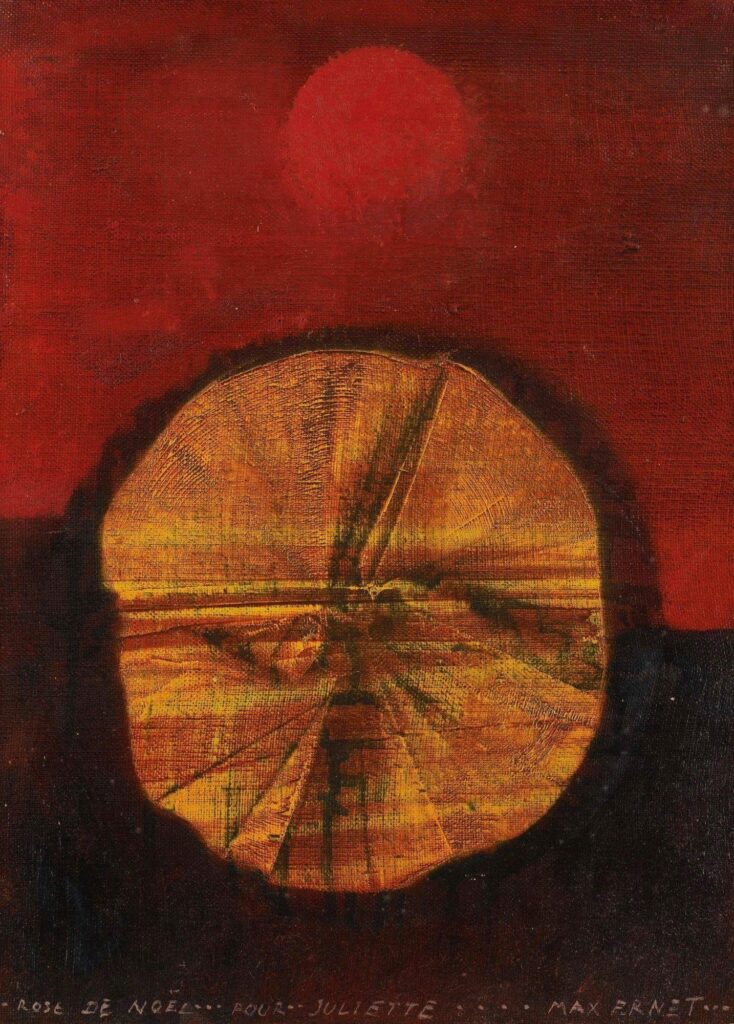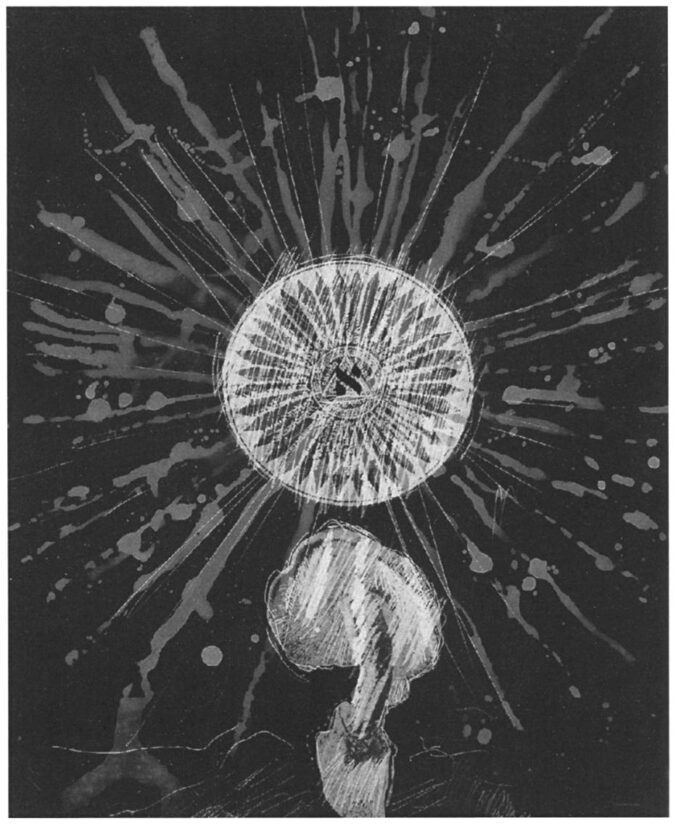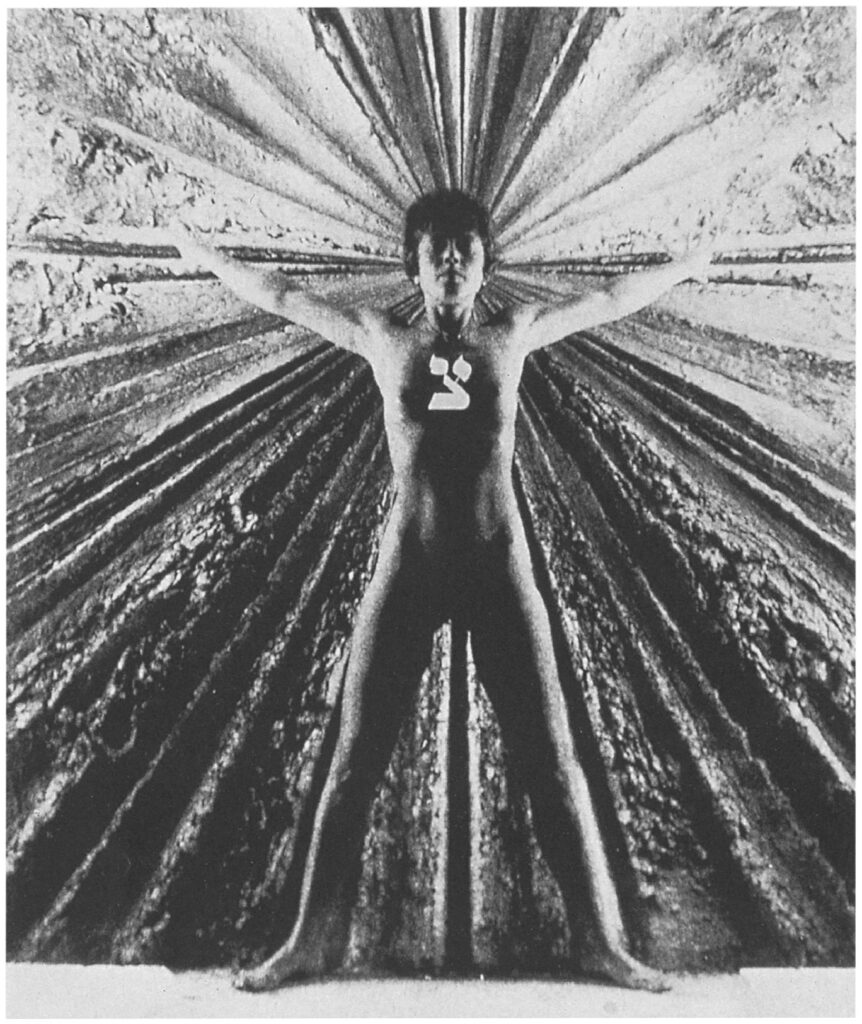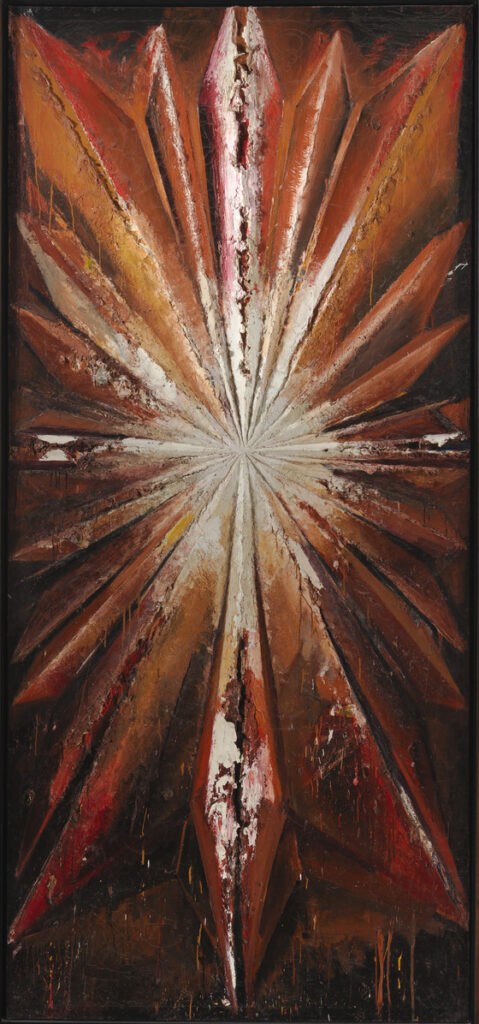Do you think that when we’re old and dying, we look as beautiful to the Gods as autumn leaves do to us?
— Jack Chanek (@jack_of_wands) October 22, 2022
I’ve been thinking about this tweet since Jack Chanek sent it the other day. (I don’t know his work, but I’ve been dipping my toes into the world of online occultism for the first time in a decade, and so discoveries abound.) I said in reply that I don’t think the gods necessarily perceive us temporally, at least in the way we do. I’m sure the observation was prompted by the fact we’re entering the dying end of the year, and one of the things I had in mind happened around this time of the year too. I thought it worth remembering.
I’ll leave the people I’m talking about anonymous, though anyone who has been around London occultism for a while will probably recognise it. The story isn’t about the personalities, though, really – whether important or little-known – but about what ritual can do.
It’s just a house, I tell myself – one of those tall, imposing Victorian affairs in North London. It’s 2004 and I’m nervous. It’s before Google Maps – I used to carry around a pocket A-Z and addresses scribbled on scraps of paper – and I’m early. I’d been invited, along with my initiators, to a Gnostic Mass to be held at the home of a well-known but discreet couple who had been performing it privately for many years; both would at that point already be over seventy years old. I like to be on time: it’s courteous, and respects other people’s time as equally important to your own. (It is also a rare quality among occultists.) In fact, because I’m nervous, I’m early, which is nearly as bad as being late. Knowing where the house is, I find a place nearby to sit and drop into some meditative breathing, the anchor of my daily practice then and now. Despite the chill in the air I can feel my shoulders relax, smell the woodsmoke on the breeze.
Yes, it’s just a house. Writing nearly two decades later I’m more aware of how much postwar occultism depended on domestic spaces like that: detached, or with thick enough walls and big rooms, which might be given over, semi-permanently, to ritual work. Twist the perspective a bit and it could be something out of a horror flick, or a Sunday tabloid exposé: the ingenuous neophyte lured into obscene rites hidden behind the doors of a house just like yours – or your neighbours’. So many magical groups owed their persistence to the simple fact they had somewhere suitable and guaranteed for regular meetings – it’s hard to resist a comparison between witches’ covens and ancient clandestine house churches. (You might write a parallel history of chaos magic and squatting, too.) Some of the initiations I would take in the following years would be in very grand settings, or outdoors in some secret place, but by far the majority – and some of the most significant – would be conducted behind unassuming doors like this.
Nervousness is often excitement wedded to risk. To understand why I was excited you have to understand something of the way the occult community in Britain worked back then: a variety of public or semi-public discussion groups, social events or beginners’ classes with various groups – publicly admitted and less so – hovering in the background. There was an elaborate dance of hinting and nudging, of feeling out and testing, and (sometimes) waiting for someone to have the courage to ask. It gave the sense that there was a lot going on behind the curtain; I’d say in retrospect that perception both was and wasn’t true. I was very young, but assiduous in my own personal work, and I had taken my first initiation; I was active in lots of the public email groups and social ‘scene’ – but this felt like the first invitation into a more guarded and trusted part of the community. I wanted to be worthy of it, and I wanted to impress; that was the risk. Thus the nerves.

I’d also been intensely interested in the Gnostic Mass itself for a couple of years, though I had no interest in the OTO. It is a beautiful and powerful ritual, subtly patterned and constructed. I’d used portions of its invocations in other rituals, meditated on its structure to try to understand it better. I though I knew and understood the powers involved, but I would be surprised that evening.
It turned out I didn’t have to go in alone: I met my initiators (through whom the invitation had come) just down the road from the house. Here’s a measure of how much I wanted to make a good impression: I’d been told to bring a robe, but the instructions were otherwise vague. So – in a move almost parodically in keeping with my Virgo ascendant – I’d hand-washed and ironed both my black and my white robe, and folded both carefully in my bag. (It turned out black was the order of the day.) A benefit of long spiritual practice has been to ease, even if only slightly, this somewhat neurotic tendency to overprepare; it is also why I had to spend a bit longer than most novices mastering the apparently elementary practice of relaxation. We robed and we were led into the temple.
Have you ever had your consciousness changed just by walking into a room? It happens. Some of it is just what the psychonauts call ‘set and setting’, sure: the rising haze of incense smoke, the light of candles, the two pillars and the diaphanous veil hanging between them. But sometimes walking into a room in which magic has been practiced regularly can be like opening the door on a hot oven. Do magic in a room for long enough and the brickwork gets haunted. You might have felt like that when someone starts an invocation and something plunges through the long run of your spine, and pulls at the back of your neck. It was like that that night.
Before that evening a friend had said to me ‘well, they’re getting on a bit – don’t be surprised if they can’t quite pull it off any more.’ How short-sighted and arrogant youth can be. At the start of the ritual, the priest comes forth from the tomb, as if dead: it is the priestess who will restore him to life. He says: ‘I am a man among men. How should I be worthy to administer the virtues to the Brethren?’ Those words have particular resonances in Crowley’s magical system, but they chime differently when spoken by a man in his mid-70s emerging from the grave – called out of the tomb by the voice of a priestess with whom he has built a practice over decades, whose voice must be more familiar to him than his own. Age makes the combination of frailty and strength in that question more apparent. Just the length of any life, with its inevitable alloy of failure and success, adds gravity to its simple premise: I am a man among men. True rituals, you might say, make meaning in excess of their authors’ intentions.
Participating in a ritual in which one has, apparently, nothing to do can sometimes be difficult. It requires cultivating generous and absorbed attention to the action, a ‘presentness’ that almost every contemporary cultural imperative pushes against. I found no difficulty, though, because I was transfixed by the priest and priestess: the Mass depends on that current of intensity between them, a basis, a kind of tuning note for the powers they are bringing down. But I was also seeing something else, an intimacy at once public and yet inaccessible to anyone else in the room, at times as if there was no-one else in the temple.
Crowley doubtless envisaged his priest and priestess younger, perhaps more obviously virile or stereotypically buxom. His erotic imagination tended toward the cliche. As the ritual continues, the priestess is seated on the altar behind a veil – in this case a sheer gauze – and she disrobes as the priest makes his invocation, justly famous and beautiful:
O circle of Stars whereof our Father is but the younger brother, marvel beyond imagination, soul of infinite space, before whom Time is Ashamed, the mind bewildered, and the understanding dark, not unto Thee may we attain, unless Thine image be Love. Therefore by seed and root and stem and bud and leaf and flower and fruit do we invoke Thee.
It’s hard to account for the sublimity of that moment. She was regal behind the veil, absolutely beautiful, and I was absorbed, certain I was in the presence of a mystery. We use words that aren’t really precise to describe that moment – overshadowing, presence – but as she recited the exultant invocation in reply I found myself profoundly moved: ‘I am the blue-lidded daughter of sunset; I am the naked brilliance of the voluptuous night-sky. To me! To me!’
Part of what moved me was the age of her body: marked by time and age and work, the kind of body usually invisible, disliked, undesired enthroned on the altar. It recast all those words of sensual ecstasy – the naked brilliance, the voluptuous, the daughter, all pleasure and purple – which alway risk being bywords for instrumental personal gratification. I felt afterwards like a constellation of words and their meanings had slipped their shackles, expanded and rearranged themselves.
I want to be precise, because it was this moment that has been on my mind. The divine beauty I perceived was not a brief image of the beauty of youth emerging as a trace through an aged body, as if to redeem the fact of age. It was instead a beauty particular to, constituted by, age, and – importantly – no less sensual because of it. As a very young adult, it displaced and refashioned what I thought about beauty and the body, a matter of particular struggle for a young gay man. All that stood unrealised and unexpressed but dawning when I stood before that altar just a little later and declared, feeling the depth of the words with new meaning: there is no part of me that is not of the gods.
*
After the rite, we ate and drank together, with much conversation among longstanding friends and – yes – some occult luminaries. I’m sure I was intensely earnest as I often was back then. I was so worried, so often, that people wouldn’t see how seriously and sincerely I took things. Though I didn’t know it at the time, I was also in the foothills of a serious spiritual crisis of the kind sincere young people sometimes go through. Part of that was wondering how to do what I wanted to do in the world, while also maintaining a spiritual life – given the social and professional taboos involved in open practice. Another part was the realisation – which I was running from – that the initiatory route I was taking was one I didn’t want. That what was calling me was elsewhere. There were other contingent factors, too boring and personal to write about here.
I don’t know whether the priestess saw this in me, intense and serious as I must have been. I know now that these things are often more visible to others than one expects. Later in the evening, she took me into the temple and put into my hand the sword that had been used in the ritual, one that had been passed down from a founder of one of her magical traditions. It is again hard to describe the meaning of that small gesture, which was one of trust and kindness, freely given. I realised then, and it remained true in all the consternation of the following years, as now, that my commitment to the mysteries was absolute. That remained true even when doubting my place in them, or the tradition I found myself in. That there was nowhere I would rather be, that it felt as right, as familiar and solid, as that sword in my hand.
I never got to thank either priestess or priest properly for that evening. Both now are dead, though their legacy continues. It’s hard, really, to know how I could have done so adequately. I hope this short note also goes some way to conveying my gratitude.



